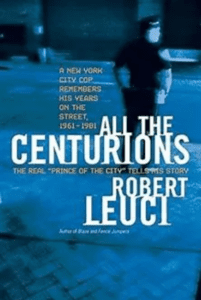Harvard plans to implement University-wide regulations governing campus space use that will prohibit overnight camping, chalking on University property, and unapproved signage and displays, according to a draft document obtained by The Crimson.
The document, produced by Harvard’s Office of General Counsel and the Working Group on Campus Space Use, follows months of pro-Palestine student protests, including a 20-day encampment in Harvard Yard.
In fact, Nekesa Straker, Harvard’s Senior Assistant Dean of Residential Life and First-Year Students recently noted that it would be not be unrealistic to think that the ‘activism’ including “an encampment [and] all that other stuff” will continue in the fall and interfere with freshman moving into their new dorms.
The draft policy aims to discourage tactics frequently employed by campus activists and is part of interim Harvard President Alan M. Garber ’76 and his administration’s efforts to prevent the resurgence of large-scale protests that have become common since October 2023.
Harvard spokesperson Jason A. Newton emphasized that the policies are still being finalized.
“The draft document obtained by the Crimson is an earlier version under review and may not accurately reflect the current status of guidance on any specific topic,” Newton wrote. “Once finalized, it will be shared with the Harvard community.”
The six-page document seeks to consolidate existing policies across Harvard into a unified set of rules for the use of campus buildings and spaces. The working group that developed the document was quietly convened over the summer, comprising senior University officials and staff.
The draft policy is presented as an effort to manage demand for campus spaces and preserve Harvard property.
“To foster community well-being and preserve resources for future generations, the University must adopt rules and policies that protect and facilitate the use of its private property,” the draft states.
Newton noted existing guidance on campus space use and added that Harvard is working to ensure that common rules and guidance are more accessible to community members.
However, the document also warns of penalties for policy violations.
Organizations and individuals that do not comply with the guidelines “may be held financially responsible for resulting costs and subject to other consequences, including referral for discipline,” according to the draft policy.
While some policies are predictable — such as restrictions on alcohol distribution at campus-wide events — others seem to target actions some affiliates consider protected free speech.
This draft policy is the latest effort to clarify or standardize University policies following a year of protests in Harvard Yard and across graduate schools.
Two weeks ago, the University announced it would standardize its fact-finding processes in disciplinary cases after criticism of inconsistent sanctions for student protesters involved in the encampment.
In January, Garber and top University officials issued a statement more explicitly defining time, manner, and place guidelines for campus protests.
Some student activists criticized the January guidance as an attempt to suppress campus activism. The Harvard Undergraduate Palestine Solidarity Committee called the statement an effort to “clamp down on pro-Palestine speech on campus.”
Classics professor Richard F. Thomas, a member of Faculty and Staff for Justice and Palestine, wrote that he believed the draft policy’s emphasis on order and compliance was misplaced.
‘Safety, security, and well-being; compliance with rules; orderliness.’ That could make us like Singapore, one of the world’s safest spaces,” Thomas wrote. “I’m not sure such rules will actually produce well-being, however.”
The draft policy requires approval for exhibits and displays, including lighting projections, from the University or other governing units. Similar to existing protest guidelines, it prohibits events that block building entrances or interfere with traffic flow.
The draft guidelines largely align with those at Harvard’s peer institutions, though they are stricter on some protest-related activities. For example, Yale University and the University of Pennsylvania allow amplified noise or chalking with certain restrictions, but Harvard’s draft rules would prohibit both entirely without permission.
The draft policy also bans filming or photographing individuals without their consent in all campus spaces unless authorized by school officials. This provision seems to address concerns from pro-Palestine organizers about students being doxxed for participating in protests.
Under the draft policy, all events must be hosted by a “designated Harvard affiliate or affiliate group sponsor.” Unless specifically permitted by site-specific policies, the policy bans co-sponsorship of events with non-Harvard organizations and unrecognized student organizations.
Certain spaces, like the Science Center Plaza — a frequent site for demonstrations — have similar co-sponsorship restrictions, and existing rules prevent recognized student groups from co-sponsoring events with unrecognized or external groups.
Many of the spring protests, including the encampment, were organized by Harvard Out of Occupied Palestine, a coalition of unrecognized student groups. Other groups that have hosted campus protests, such as the Harvard Feminist Coalition, are also unrecognized.
Former Harvard President Lawrence H. Summers, who has urged the University’s recent leadership to take a tougher stance against pro-Palestine protesters, cautiously approved the draft policy but remained skeptical about its enforcement.
“These policies are fine and reasonable,” Summers said in an interview. “The issue is that the University has consistently failed to act and impose sanctions when policies are violated and has been slow to implement policies for Jewish student groups. That is why it faces multiple federal investigations and civil suits.”
Former Harvard Medical School Dean Jeffrey S. Flier, co-president of the Council on Academic Freedom at Harvard, wrote that the policy “seems entirely necessary and appropriate.”
If adopted, Flier said, the “key issue will be how effectively it will be implemented and whether violations are handled with appropriate disciplinary actions.”
“It may not take long to find out,” he added.












